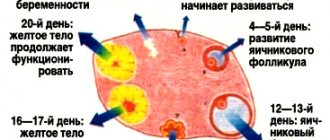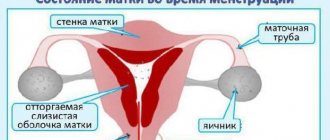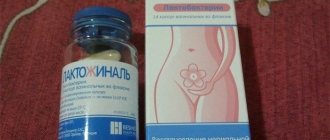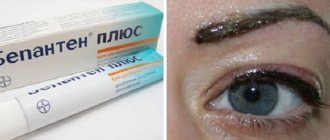- How does immunity work?
- Features of immunity during menstruation
- Possible complications
- Reasons for decreased immunity before menstruation
- Signs of weak immunity
- Immunity during menopause
- How to boost immunity?
- Video on the topic
Immunity is not a separate organ, but a set of defense mechanisms when encountering bacteria and viruses. The immune system
is multi-stage, so it is very difficult for microbes to get into a well-functioning body.
In addition to the three organs responsible for protective functions in the body (thymus gland, lymph nodes, spleen), at the initial stage, when encountering foreign microorganisms, the skin and mucous membranes react.
How does immunity work?
Every day we all have to deal with a lot of bacteria from the outside world. They can cause diseases, sometimes very serious ones. The body of a healthy person reacts to “foreigners” thanks to immunity. The main goal is to protect from everything foreign, including viruses,
parasites , microbes.
This protection is the work of the immune system, which every person already has from birth. While still in the womb, the child receives antibodies that allow him to form his own protective barrier against infections, viruses, and bacteria.
This type of immunity is called natural passive immunity.
There is also natural active immunity. This is a defense that we ourselves consciously develop to combat dangerous invaders. In medical language, such protection is characterized as a reserve of antibodies produced by B-lymphocytes.
There is also
artificial immunity
- it is formed in the case of vaccinations. Passive artificial immunity is formed as a result of ready-made antibodies, and active immunity is formed in the body’s struggle, after the introduction of a vaccine.
Despite such a complex protective system, immunity drops before menstruation, and many women need help during this period in order not to get sick.
Features of immunity during menstruation
Weakness, susceptibility to infectious diseases, poor sleep, frequent colds - we are often accustomed to attribute all this to seasonal ailments or an accident. But, if you compare the condition and the menstrual cycle, a clear dependence is revealed
. Before menstruation, immunity decreases and this is primarily due to hormonal changes.
If we consider the monthly female cycle, then it is during the onset of menstruation that estrogen decreases. It is this hormone that interacts with the immune system, fighting foreign microorganisms. Responsible for protection against infections.
Also, weakened immunity before menstruation is associated with an unbalanced diet, hypothermia, stress, and seasonal lack of vitamins. These factors significantly reduce the body’s protective functions and contribute to weakening resistance to various types of infectious diseases during this difficult period for women.
.
Therefore, recommendations that during menstruation you need to dress warmly and avoid sudden temperature changes are quite justified.
Possible complications
A woman’s immune system weakens during menstruation and allows the development of viruses that “dormant” in the body
. Common thrush, which may be in a quiescent stage, begins to progress a couple of days before the start of the cycle.
Thrush (vulvovaginal candidiasis)
This is a disease of a fungal nature. In the period 5-7 days before the start of the cycle, candidiasis begins to worsen in some women. Its appearance is associated not with the very fact of a special phase of the female cycle, but with the state of hormones, which noticeably changes and weakens the female body
. During this period, a woman’s immune system is susceptible to the activation of fungi. Thrush manifests itself:
- white vaginal discharge;
- burning, redness of the intimate area;
- itching before menstruation;
- pain before sexual intercourse.
A woman's immune system undergoes constant change under the influence of her own hormones and oral contraceptives. Hormonal changes provoke candidiasis.
Herpes
Also, under the influence of changes in the body before the start of the cycle, many women experience an exacerbation of herpes
.
Moreover, before and during menstruation, herpes can appear in different places. These are lips, genitals, buttocks, nose. The disease manifests itself differently in everyone
. Depends on the location of the rash.
Herpes during menstruation can have several causes, in addition to hormonal changes:
- avitaminosis;
- sexual contact with a carrier of infection;
- being in a climate that is too hot or cool;
- lack of oxygen.
Herpes affects the very course of menstruation.
For example, many ladies note that with herpes there is severe pain that accompanies throughout the entire period of menstruation.
The pain syndrome is also accompanied by a burning sensation and discharge from blisters formed on the surface of the mucosa .
Herpes can be caused by inappropriate use of hygiene products or incorrectly selected intimate hygiene products. Important!
Doctors recommend treating this disease systematically and not self-medicating. It should be remembered that herpes can also affect the internal genital organs.
Many viral diseases can have several features and signal other pathologies in the body. A visit to a gynecologist will help not only quickly recognize the disease, but also carry out therapy that will effectively relieve pain during the menstrual cycle.
The nature of menstruation during a cold
Colds very often begin when the onset of menstruation is quickly approaching. The body, struck by a respiratory disease, becomes lethargic, and insomnia occurs. A cold can delay the onset of menstrual periods, as it is an additional stress for the body and affects its hormonal system.
A delay in the cycle with a severe cold is possible for a maximum of a week.
Menstruation and the body's immune system
Before and during critical days, women feel a deterioration in their health. It is not surprising, because the body undergoes changes that, although regular, are global in nature. Does it have enough resources to update? Do your defenses suffer during this period of development? How are periods, immunity and well-being connected?
Immunity: what is it and where does it come from?
Immunity is a kind of shield that the body puts up against foreign invasion in the form of viruses and bacteria. It blocks their penetration into cells and fights those damaging agents that have nevertheless penetrated into them.
The immune system, being part of the whole organism, is dependent on many factors. The most important among them are the metabolic processes occurring in the human body:
- Water;
- Lipid;
- Protein.
And their correctness and quality are regulated by hormones, including sex hormones. They also control the menstrual cycle, decreasing and increasing in quantity at its different stages. This is why menstruation and immunity are so closely related.
The state of the body's defenses before menstruation
The premenstrual period is a painful experience for many people. There is a whole list of signs, grouped by causes, that haunt a woman these days. There is also a common feature for all – decreased immunity before menstruation.
The body's defenses during menstruation
It is caused by hormonal conditions. To prepare the endometrium for rejection, a certain amount of these active components is needed. A week before menstruation, there is a decrease in progesterone, which predominated throughout the second half of the period, and estrogen.
This is not just a smooth decrease in both components, but a powerful chemical reaction, a kind of fight between substances.
The body’s response to it remains inevitable in the form of PMS symptoms: pain, swelling, emotional manifestations. But the main thing is that all this weakens the immune system before menstruation.
In addition to purely biological reasons, which reduce the possibility of producing cellular, humoral, phagocytic and other components of protective forces, they are consumed faster during this period. Any of the premenstrual symptoms forces the immune system to react to it.
Features during menstruation
The logical question is whether immunity decreases during menstruation. PMS symptoms are weakening, some disappear completely, so it seems that the restoration of protective forces has also begun. This is not entirely true. The state of immunity is still determined by hormones.
At this stage of the cycle, their number gradually increases, estradiol predominates. One of the properties noticed for this substance is a negative effect on the immune system. It is also a chemical reaction that interferes with the production of certain components of protective forces. This is why immunity weakens during menstruation.
This also has a more understandable explanation:
- The body's resources are aimed not only at renewing the uterine mucosa. Changes occur in the ovaries, the hematopoietic system, which should replace the natural loss of biological fluid, endocrine and lymphatic spheres;
- Menstrual flow, as an integral part of the process, creates favorable conditions for foreign microorganisms. There is a need to strengthen the protection of the genital organs from inflammation and infections. This factor also contributes to the fact that the immune system is under greater stress during menstruation than on other days of the cycle. This is especially true for local defense forces. Their weakening is also due to a change in the acidity of the vagina, a violation of the bacterial composition of its mucosa.
And for the first time, a woman runs the risk of contracting many of the ailments during menstruation:
- Inflammation of the uterus, appendages;
- Endometritis;
- Vaginitis;
- Herpes;
- Candidiasis.
This especially applies to women who ignore hygiene rules. If a runny nose and elevated body temperature have become a common manifestation of menstruation and stop with its completion, it means that the protective system is seriously weakened.
We recommend reading the article about hair problems during menstruation. You will learn about the effects of hormones on the body, the causes of hair loss during menstruation, and whether it is possible to get a haircut on menstrual periods.
Problem-free periods and high immunity are united by the fact that they are signs of a healthy body. But we must remember that the protective forces also need to be treated with care, especially when they naturally weaken.
Source: https://ProMesyachnye.ru/immunitet-vo-vremya-mesyachnyx/
Reasons for decreased immunity before and during menstruation
The hormonal changes that occur in a woman’s body before a cycle often affect not only physical health, but also mood. Many women go through major changes in their psychological state 7-10 days before their period.
Irritability, tearfulness, a feeling of fatigue and causeless anxiety appear.
This condition is called PMS. To determine its severity, doctors recommend undergoing basic tests to control hormones in the body.
Usually they are prescribed to check the level of prolactin, progesterone, estradiol.
In some cases, consultation with specialists such as an endocrinologist, psychotherapist, or gynecologist is necessary. With severe premenstrual syndrome, there is no need to talk about good immunity. It is during this period that women experience a significant decline.
There is a theory that taking vitamin supplements and relaxation activities can significantly improve the quality of life during this period. In some cases, the patient is prescribed drug therapy, hormonal drugs are prescribed in small doses. But such treatment must be prescribed by a doctor, and the state of the woman’s hormones must be monitored.
You shouldn’t be scared, but you need to be prepared for the fact that a drop in immunity during critical days is a natural condition that affects the internal biochemical processes occurring in the body, endurance, and protection from diseases.
Causes of thrush before menstruation
One of the causes of thrush is a violation of the microflora in the reproductive organs, which is closely related to changes in the acid-base balance, hormonal levels of the body, taking antibiotics and other reasons. Menstruation is provoked by the first two reasons, that is, they change the acid-base balance and hormonal levels, which is why thrush often worsens before menstruation.
With candidiasis, the microflora of the genital organs suffers
What could be the causes of thrush?
Thrush is a genitourinary infection caused by the yeast-like fungus Candida albicans. This disease was popularly called thrush for the curdled vaginal discharge and the same white coating that forms on the penis in men.
It is believed that candida forms part of the microflora of the female body. But as long as the body maintains an appropriate acid-base balance, the amount of fungi is within limits that do not cause trouble for the woman. Acidity in the body is maintained by lactobacilli, beneficial microorganisms.
Taking antibiotics kills not only pathogenic microbes, but also beneficial ones. Lactobacilli die, resulting in a decrease in acidity. An alkaline environment is quite fertile for the development of fungi, and they begin to multiply intensively.
Weakened immunity caused by colds, infections, and diabetes also provoke candidiasis.
Why does thrush often worsen before menstruation?
If thrush appears before menstruation with enviable regularity, we can talk about permanent candidiasis. Before the onset of menstruation, in the final phase of the menstrual cycle, conditions are created that contribute to the exacerbation of the disease.
Thrush is a very delicate problem
The causes of thrush before menstruation are as follows:
- The level of hormones - progesterone and estrogen - decreases. Along with them, the production of mucus, which protects the vagina from the penetration of microorganisms, decreases.
- The acid-base balance changes towards alkalization, which creates favorable conditions for the proliferation of fungi.
- Immunity also decreases before menstruation.
Thrush before your period is not normal. This is a pathology that needs to be diagnosed and treated, since thrush destroys the walls of the vagina. Ulcers and lesions form on the skin. And damage to the skin and mucous membranes is an open door for other infections.
What are the symptoms of the disorder?
The symptoms of thrush before menstruation differ little from the symptoms of this disease, which worsens at other times. This:
- Itching in the perineal area.
- Increased dryness of mucous membranes.
- Curd-like discharge with a sour, milky odor.
- Burning when urinating.
- Swelling of the labia majora, redness.
Dryness of the vaginal walls leads to microcracks and bleeding wounds formed as a result of physical contact, scratching, and the use of detergents.
Some women believe that thrush can cause a delay in menstruation. But concerns about the impact of thrush on your periods are unfounded. The fact is that the delay of menstruation and the recurrence of thrush can be influenced by similar factors: hormonal deficiency, metabolic disorders in the body, stress, and the psychophysical state of the woman.
The disease is often accompanied by severe itching
How is the diagnosis carried out?
If thrush is suspected, which is determined visually by the condition of the external genitalia, a smear is made and sent to the laboratory. In laboratory conditions, candida is found in plaque and cheesy discharge.
The fact is that before menstruation, itching, burning and dryness can occur not only as a consequence of thrush, but also as a result of a sharp decrease in hormone production.
Women go to the doctor with suspected candidiasis, but it turns out that the woman does not have this fungal disease. Therefore, if the disease is suspected, research into the cause and treatment of thrush before menstruation is necessary.
During menstruation and in the first phase of the cycle, the examination may not be effective enough.
How to eliminate a drug disorder
An examination for candidiasis is carried out by a gynecologist. For this disease, the following medications are prescribed, listed in the table. It is advisable to carry out treatment before the start of the menstrual cycle in the second phase, and it is carried out locally, with vaginal suppositories. Oral medications are less commonly prescribed.
VaginalOral
| Terzhinan, | Mikomax |
| Nystatin | |
| Gyno-Pevaril | Mikosist |
| Polygynax, | Flucostat. |
| Pimafucin | |
| Irunin | Fluconazole |
| Livarol | Diflucan |
| Clotrimazole. |
Nystatin is a drug narrowly targeted against Candida fungus, produced in the form of tablets, ointments and suppositories. In ointment form, Nystatin is used as tampons.
Nystatin is often prescribed for treatment
Pimafucin is also available in the form of suppositories, creams and tablets. Pimafucin tablets are used against intestinal candidiasis. The cream is used for the external genitalia, against fungus on the skin. Suppositories are used vaginally.
How is traditional medicine used?
Traditional medicine is not able to completely get rid of candidiasis, but you can provide some help to yourself using witchcraft remedies. For example, a decoction of oak bark, with its tanning properties, heals wounds and ulcers and strengthens the walls of the vagina.
Chamomile decoction washes out colonies of fungi from the vagina and relieves irritation. All these remedies are used before the onset of menstruation, as soon as symptoms of thrush appear. During menstruation, the use of decoctions is not recommended for two reasons:
- The effectiveness of these means and procedures will be extremely low.
- The female body during menstruation is vulnerable to infections.
A more effective remedy against candidiasis is a decoction for douching, consisting of chamomile, calendula, yarrow and sage.
Chamomile, as already mentioned, has a calming effect, and other herbs are effective against inflammation and pathogenic microflora. Especially yarrow.
Herbs are taken in equal proportions, thoroughly crushed and mixed. For the decoction, take 1 tablespoon per half liter of water. The collection is poured with boiling water, brought to a boil and then left to cool.
The decoction for douching should be comfortably warm. You can douche and wash yourself with it.
You can also use chamomile decoction at home.
What's the forecast?
Candidiasis is not considered an incurable disease. Modern medicines can cure acute candidiasis within 4-5 days. Treatment of a chronic disease takes longer: from 4 months to a year.
But candidiasis is prone to relapses. And since the fungus is easily reintroduced into the body through a carrier partner, or as a result of being in public places, re-infection cannot be ruled out. This is largely due to weakened immunity. Repeated infection can lead to exacerbation of thrush before menstruation.
Women prone to candidiasis simply need to pay attention to what they eat.
The fungus feels at ease in an alkaline environment, and this is greatly facilitated by the consumption of flour products, sweets, and foods containing large amounts of carbohydrates.
Particular attention should be paid to the foods consumed in the last phase of the cycle, before menstruation, if thrush always appears before menstruation.
From this video you will learn the causes of thrush before menstruation:
After the course of treatment, the woman should be regularly monitored by a doctor and if a new appearance of the fungus is suspected, she should seek help.
It is important to know that you should not douche before the examination.
The result of the analysis may be inaccurate, since as a result of douching, especially with the use of antiseptics, the fungus is washed out of the vagina, and a significant part of the microorganisms die.
Source: https://mesyachnie.com/informacija/molochnica-pered-menstruaciej.html
Signs of weak immunity
A weakened immune system is signaled primarily by numerous symptoms that appear unexpectedly. Many ladies do not always pay attention to them, attributing them to the characteristics of the body.
So, if the body’s defenses are weakened, then the following may occur:
- having colds more than 2 times a year;
- long-term ARVI;
- wounds heal poorly;
- mycoses, fungi, candidiasis;
- enlarged lymph nodes;
- frequent exacerbations of diseases of the genitourinary system (cystitis);
- nasopharyngeal diseases;
- pustular skin diseases, etc.
In some cases, weakened immunity is characterized by the manifestation of severe infectious diseases such as tuberculosis.
Moreover, the disease can occur in any form.
Immunity during menopause
The average age of menopause is 50-60 years. It was during this period that the woman already experienced significant hormonal changes, accompanied by a decrease in the production of estrogen by the ovaries
.
Such a restructuring is very painful for a woman, since the body, accustomed to working in a certain mode, begins to experience a lack of hormones, which leads to various kinds of pathological conditions and unpleasant changes in the woman’s appearance. Thus, it is during the period of hormonal changes that a sharp aging of the skin is often observed, the face sag
, etc. In this case, we are talking not just about age-related wrinkles, but about the cessation of the production of elastin, which maintains tone.
Another external sign is weight gain. A woman can unexpectedly gain 5-15 kg in a couple of years .
This weight gain is also associated with hormonal changes. Important!
Immunity plays a crucial role during menopause. A lack of hormones can significantly weaken the female body during this period, leading to the development of diseases and complications from existing diseases.
According to doctors, immunity also affects the timing of menopause. Scientists connect the peculiarity of the body’s protective functions and the course of menopause in women. Therefore, all the general recommendations on strengthening the protective functions of the body that we hear from doctors aged 20-40 years should definitely be followed in order to meet age-related changes fully armed.
How progesterone changes a woman's health: 10 factors
There are days in a woman's life when the world seems to go crazy.
Every little thing irritates you - the background noise of the TV on, a sharp phone call, the bright light of the sun in the windows. I want coffee and under the blanket - to go into hibernation, hang up a “Do not disturb!” sign. Women know: this is how PMS manifests itself. But not everyone is aware that premenstrual syndrome is associated with a sharp drop in progesterone, the hormone that will be discussed in the article.
What does progesterone affect?
Progesterone is a steroid hormone that is produced in the ovaries and a little in the adrenal glands. It is synthesized by the corpus luteum, a temporary gland formed in the second phase of the menstrual cycle. Progesterone is also called the pregnancy hormone. Thanks to him, a woman can conceive, bear and give birth to a child.
Illustration: gormonal.ru
Progesterone affects many processes occurring in the female body. It prepares the endometrium (the mucous layer of the uterus) for a possible pregnancy, stimulates the development of the mammary glands, and affects the functioning of the skin and nervous system. Here's how progesterone changes a woman's health.
- Menstrual cycle.
Monthly processes in the female body are regulated by sex hormones. Progesterone works in the second phase of the cycle after ovulation. Its level rises approximately from the 14th to the 28th day of the cycle - at the time when conception of a child is possible. It prepares the uterus to receive the embryo. But if pregnancy does not occur, its level drops - and soon menstruation begins. According to many scientists, the cyclic decrease in progesterone is one of the causes of PMS (premenstrual syndrome). - Weight
. Progesterone increases the activity of enzymes in fat cells and increases the reserves of adipose tissue. This is how a woman’s body prepares to bear a child – it accumulates resources. As progesterone levels rise during the second phase of the cycle, many women notice a weight gain of 1-2 kg before menstruation. - Digestion.
The task of progesterone is to reduce the tone of the uterus after conceiving a child so that a miscarriage does not occur. But the hormone affects not only the reproductive organs. In the second phase of the cycle, an increase in progesterone often leads to constipation. This hormone relaxes smooth muscles, slows down the passage of food and interferes with bowel movements. - Muscles and ligaments.
Progesterone should relax the ligaments and muscles of the pelvis during pregnancy - in preparation for childbirth. Outside of pregnancy, its effect is noticeable in the second phase of the cycle. This is why training before menstruation is dangerous - sprains and other injuries are possible. Many women note that their backs and legs hurt before menstruation - and this is again the relaxing effect of progesterone. - Immunity
. Progesterone suppresses the immune system. This is how nature intended: in order for the mother’s body to accept a new life, immunity must be reduced. Otherwise, a miscarriage will occur - the immune system will try to get rid of the foreign agent (fetus). Outside of pregnancy, the influence of progesterone explains frequent colds and the appearance of acne before menstruation. - Water balance.
Progesterone causes sodium and water retention. Therefore, before menstruation, swelling appears on the arms and legs, and sometimes on the face. They go away after progesterone drops - with the start of a new cycle. - Mood.
Progesterone is a natural tranquilizer. It calms, reduces anxiety - creates conditions for a favorable course of a possible pregnancy. And it also suppresses mood, leads to lethargy and apathy a week before menstruation. At the end of the cycle, when progesterone levels drop, the woman becomes aggressive, irritable, and anxious. - Dream
. Progesterone is one of the hormones that regulate sleep phases in the brain. Its level increases in the second phase of the cycle and during pregnancy - and then drowsiness occurs. Progesterone drops before menstruation and insomnia develops. Age-related sleep disturbances in women are also associated with a decrease in progesterone. - Libido
. Progesterone suppresses sexual desire, testosterone and estradiol increase it. Therefore, in the second phase of the cycle, when there is a lot of progesterone and little testosterone, libido decreases. - Conceiving a child.
Progesterone prepares the endometrium to accept the fertilized egg, improves blood flow in the uterus, reduces its tone and maintains the dominant state of pregnancy in the brain. Lack of progesterone leads to miscarriage.
How to test progesterone
With a regular menstrual cycle, a blood test for progesterone is taken on the 22-23rd day of the menstrual cycle. Blood is taken from a vein in the morning on an empty stomach. On other days of the cycle, the analysis is uninformative. The day before the study, physical activity and stress are prohibited. You are not allowed to smoke or drink alcohol an hour before.
The level of progesterone depends on the phase of the cycle:
- follicular phase – 0.3 – 2.2 nmol/l;
- ovulatory phase – 0.5 – 9.4 nmol/l;
- luteal phase – 7.0 – 56.6 nmol/l.
During menopause, the hormone level drops to 0.6 nmol/l and below. Progesterone levels can be changed using hormonal medications.
Subscribe to the channel and give it a thumbs up!
Source: //zen.yandex.ru/media/id/5c194121bd9aeb00a91f2753/5d048cb620f7430dda239f06
How to boost women's immunity?
The generally accepted advice that doctors give to women to strengthen the body’s protective resources includes:
- taking vitamin complexes;
- a combination of sports and walks in the fresh air;
- getting rid of bad habits;
- weight control (avoid sudden weight changes, both in the direction of weight gain and weight loss);
- preventive examinations by a gynecologist, endocrinologist;
- taking herbal medicines aimed at strengthening the body;
- proper nutrition;
- sleep control (daily sleep should be at least eight hours a day).
Healthy lifestyle
Maintaining a healthy lifestyle is becoming an increasingly feasible task for many women. All possible sports activities, nutritional adjustments, proper distribution of workload during the day, avoiding stress - all this can be done if you really set a goal to strengthen the body and get healthier.
Many sports centers offer a variety of courses and sets of exercises to improve women's health. It is worth understanding that a healthy lifestyle is, first of all, a change in lifestyle and giving up bad habits.
Proper nutrition
A person's immunity depends on what he eats daily.
An abundance of healthy food makes the body stronger. While products that are harmful can provoke serious allergies and a number of diseases. It is important to control not only the percentage of proteins, fats and carbohydrates you consume, but also the quality of food. How natural is what you eat?
An important factor is diet.
. A well-chosen dietary restriction can transform the body and improve health. But you should not follow a diet if you have a number of diseases. It is advisable to carry out dietary restrictions under the supervision of a doctor and courses. It is worth eating foods that increase immunity in women - nuts, dried fruits, fatty fish, lean meat, vegetables, fruits, and cereals.
Vitamins and dietary supplements
- For beauty
For the female body, there are a number of vitamin complexes that can improve the quality of skin, hair, and nails. It is good to select such drugs after taking a blood test to check for a lack of vitamins, micro and macroelements.
- To strengthen the body
To strengthen the immune system, you should definitely use fiopreparations. Moreover, this must be done strictly in a course, 2 times a year. Echinacea, eleutherococcus, lemongrass, licorice root, lemon balm - all these are natural immunostimulating agents that can be found in the pharmacy chain. Based on these components, you can use herbal tea, decoctions, and dietary supplements.
- For gynecology
Sexual health is important for the female body. There are many medicines of natural origin that have an anti-inflammatory effect, reduce cramps (during the menstrual cycle), and help with mastopathy. Herbal medicines based on natural hormones can regulate endocrine processes in the body and slow down aging.
Vitamin complexes
All those who live in northern countries, where the number of sunny days is limited, need to maintain vitamin D and calcium levels. These two components are necessary for a woman’s health, the normal functioning of the skeletal and muscular systems
. For those whose work involves overwork and heavy loads, it is necessary to use B vitamins and magnesium. These two vitamins help the nervous system cope and improve metabolic processes in the body.
Iodine is very important for women. To find out the correct daily dosage, it is important to monitor the functioning of the thyroid gland (exclude conditions of hypothyroidism, hyperthyroidism). To do this, you need to contact an endocrinologist and donate blood for thyroid hormones.
Vitamin complexes based on Omega-3 are indicated for all women over 35 years of age, as well as for those who have problems with the heart, blood vessels, and high cholesterol. An Omega-3-based supplement helps regulate blood viscosity, is
antithrombotic agent, and cleanses the walls of blood vessels.
Folk remedies
Traditional medicine for women's immunity offers herbal teas, which must be used regularly, but the dosage must be observed.
It is important that the body responds well to the natural remedy. Pharmacies offer candles, syrups, and tinctures based on medicinal herbs. Their use must be agreed with a doctor. Since in some diseases in women, a natural remedy can provoke tumor growth and increase swelling.
100% about why immunity drops before menstruation, ways to increase
Each stage of the reproductive cycle in women is provided by different hormones. Changing the background requires the consumption of biological resources - especially bone marrow and endocrine glands. Its reduction with age causes PMS and other unhealthy conditions that provoke menstruation. The immune system is also affected because many aspects of it are regulated at the hormonal level.
Why does the immune system weaken before and during menstruation?
The weakening of immune defense about a week before and after critical days is explained by the increased load on the bone marrow.
At this time, he is busy synthesizing almost exclusively red blood cells to the detriment of others. Red blood cells are responsible for breathing, which is critical to life. But immunity here looks like a task that can be postponed, especially when there is a shortage of time and resources. But its proteins and bodies also leave the body with the blood and need to be “replenished”.
The second aspect of its reduction is that hormones regulate the behavior of local defenses - the skin, genital tract, intestines, organs of hearing and vision. Depending on the stage of the cycle, skin pores can produce less or more oil - an ideal environment for the proliferation of beneficial microflora and blocking harmful ones.
Similarly, the rate of production of tear fluid, earwax, and vaginal mucous secretions, as well as their composition, changes. Increased (premenstrual period and menstruation itself) or decreased (several days after menstruation and ovulation) tone of the uterine walls indirectly changes the speed and strength of intestinal peristalsis, improving or worsening the position of its microflora and stool.
Raising protective properties
Hormonal regulation of the activity of the sebaceous, Bartholin and other glands that produce various external protective secretions cannot be corrected. Or rather, it can be corrected, but in the same hormonal way, which is not always appropriate. But for the bone marrow to adequately respond to the next challenge, it only needs an increased supply of the components it uses to synthesize bodies.
Vitamins
It is possible to save resistance from another peak by taking these drugs because they serve as a necessary component of all reactions for the synthesis of new proteins in the body.
The main element, due to the lack of which immunity decreases before menstruation, is iron. It is necessary for the production of new red blood cells.
The second reason for the weakening of the immune system is the lack of animal proteins in the diet of women who are too committed to plant foods. It may also decrease due to a lack of ascorbic acid, which is necessary for the production of C-reactive proteins (together with immunoglobulins, they belong to the so-called acute phase proteins - those that trigger other immune reactions in response to infection). You can replenish their reserves using:
- “Vitrum” is one of the most complete complexes, containing a total of 31 microelements and vitamins. It helps eliminate any possible deficiency that reduces immunity before menstruation. Its basic “package” is recommended, 30 tablets of which cost about 515 rubles, and 100 tablets - from 1100 rubles;
- “Multi-Tabsa” is also quite “voluminous” for a supplement that plays on improving immunity, formed by 19 components. If menstruation has a noticeable effect on the immune system, it is better to choose the “Multi-tabs Immuno Plus” option for 517-520 rubles. (30 tablets);
- Centrum is another good solution for cases where the exact list of deficient elements in the diet is unclear or too large. It contains more than 30 components. The most universal is the “Centrum Multivit Comp from A to Zinc”, costing from 490 rubles. for 30 tablets.
Separately, it is best to compensate for the lack of iron through blood-rich offal and semi-finished products (liver, kidneys, blood sausage) of animal origin.
Iron from vegetables and fruits cannot actually be absorbed. As a replacement for these high-calorie products, you should try syrups/drops based on ferric (digestible) iron - like Ferrum Lek (from 145 rubles.
for 100 ml) or “Maltofer” (about 245 rubles for 30 ml).
dietary supplements
For those who do not want to take them, like any “pills,” dietary supplements can boost their immunity.
They are absorbed only partially, and the unassimilated half of them is perceived by the body as something foreign. Immunity simultaneously receives with them both the components necessary for its operation and a target for attack. As a result, its activity increases, and overall resistance indicators also increase.
- Mumiyo. This product of centuries of natural mummification and petrification of plant and animal remains is rich in minerals, although it contains a minimum of vitamins and amino acids. To compensate for their deficiency, it is diluted with warm milk or a glass of fresh fruit juice. And then they take it in dosages ranging from the head of a pin to the tip of a teaspoon, three times a day, for a minimum of 10, maximum of 28 days.
- Shark cartilage. It is rich in arginine, tryptophan and carnitine. We are talking about ordinary amino acids present in all animal products and a number of plants; it’s just that shark cartilage is more saturated with them. Arginine accelerates the growth and synthesizing activity of the thymus gland, tryptophan improves mood and stabilizes the functioning of the central nervous system due to its participation in the synthesis of vitamin B3, serotonin and melatonin. Carnitine is a stimulator of all metabolic processes at the cellular level and is involved in the breakdown of carbohydrates in their mitochondria. Thanks to it, the synthesis of any proteins in the body is more intense.
- Immunetika drops. Several different immunostimulants of natural origin in one preparation. It contains beaver stream and badger fat, royal jelly, propolis and dead bees. And its plant base is created by extracts of more than 15 plants, including the Cordyceps mushroom, which is extremely popular in China.
Folk remedies
Alternative medicine considers natural anti-inflammatory and soothing plants to be the key to normalizing the behavior of the immune defense, heart and blood vessels during menstruation - plants with a mild toxic effect due to their high content of volatile bioflavonoids.
- Acacia leaf and gentian herb. They need to be taken in dry and crushed form, half a teaspoon each, poured into a thermos, pour boiling water over it and leave for half an hour. Strain and drink with a teaspoon of honey after meals, 2 times a day.
- Jasmine flower and yarrow herb. A dessert spoon of dried jasmine is mixed with a teaspoon of yarrow herb and poured a glass of boiling water into a thermos. Leave for 15-20 minutes, strain out the herb and drink warm, after meals, once a day.
- Carrots with spinach and cucumber. Just a vitamin-rich drink. It is prepared by combining 1 part of fresh cucumber and spinach leaves with 2 parts of fresh carrot and a teaspoon of sour cream or cream. Then mix and drink on an empty stomach, twice a day.
Nutrition
Menstruation is characterized by increased cravings for sweets. This is harmful to the figure, but for hematopoiesis, renewal of the supply of immune bodies and contractions of the walls of the uterus, more calories are actually required.
Therefore, there is no need to fight instinct - it is enough to maintain a sense of proportion. Not only chocolate is very sweet, but also ripe mangoes, avocados, and bananas. It also doesn’t hurt to take into account that:
- Kozinaki is rich in representatives of group B, and they are required not only for the synthesis of some immune cells, but also for the central nervous system;
- vegetables and fruits contain many vitamins (their consumption during menstruation increases several times) and fiber, which is beneficial for stool (stool retention increases pain from contractions of the uterine walls);
- ascorbic acid is necessary for the renewal of mucous membranes, connective tissues, and immune defense. Taking 1-2 large citrus fruits per day is the easiest and most effective way to boost immunity during menstruation.
You cannot limit yourself in products of animal origin - the amino acids from them are involved in the production of new bodies and blood proteins, instead of those that have left the body. It is wiser to give up legumes - they cause increased gas formation in the intestines, increasing pain in the lower abdomen, and contain protein with an incomplete amino acid series.
Other tips
In addition to ascorbic acid, you need to pay special attention to vitamins A, D and E, and the mineral calcium (take only at the same time as vitamin D). Fluctuations in the female background lead to increased bone fragility, decreased immunity of the skin and upper respiratory tract. Vitamins A, C and E help minimize this effect, while calcium and vitamin D help strengthen bones.
Source: https://immunologiya.info/mesyachnye-i-immunitet.html









